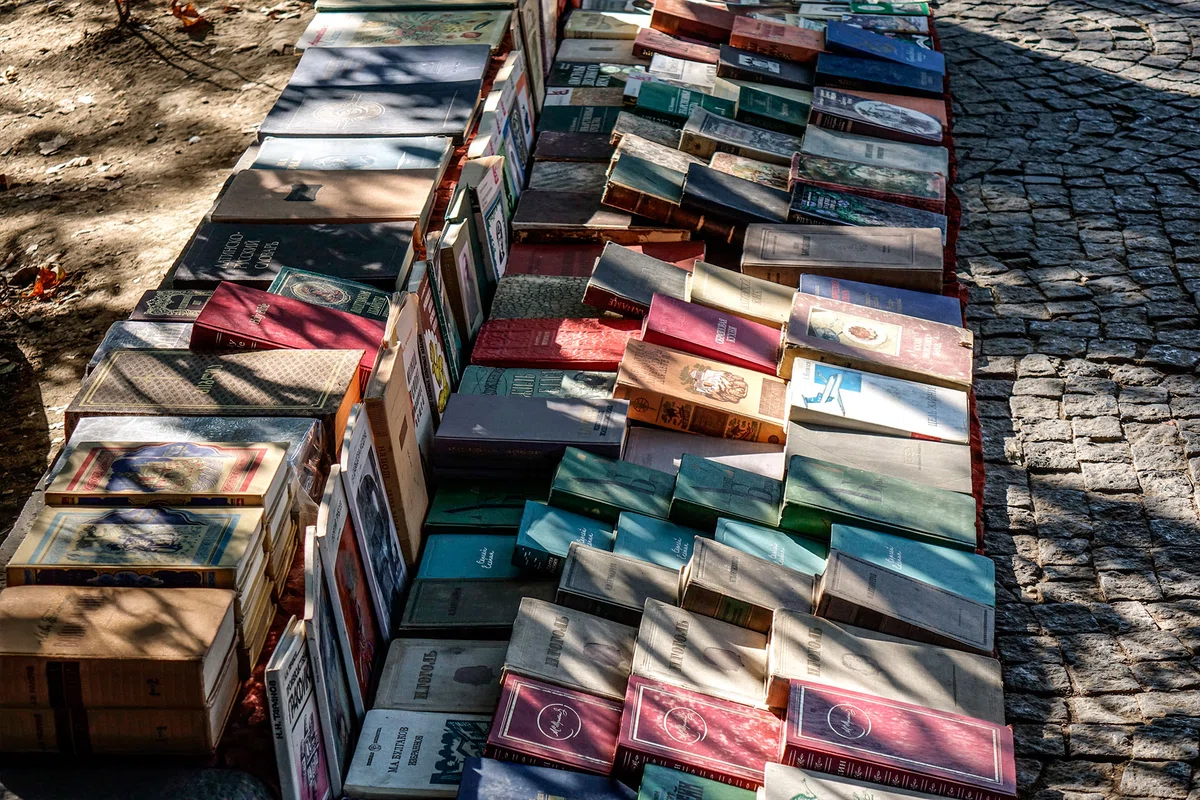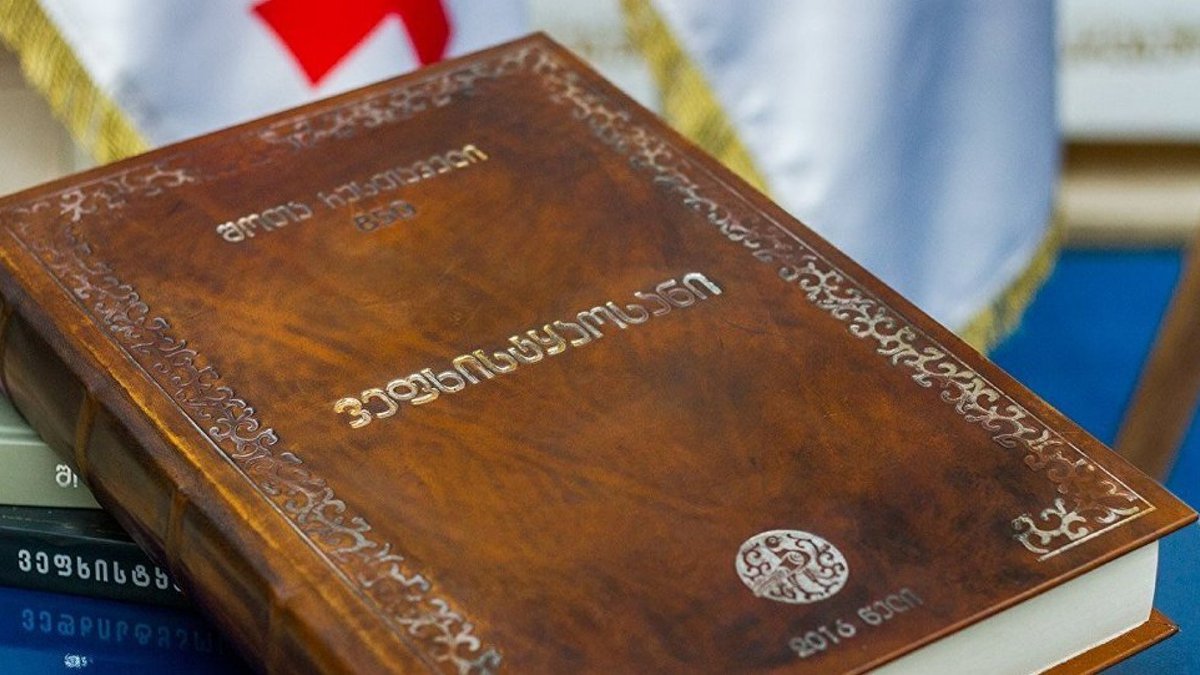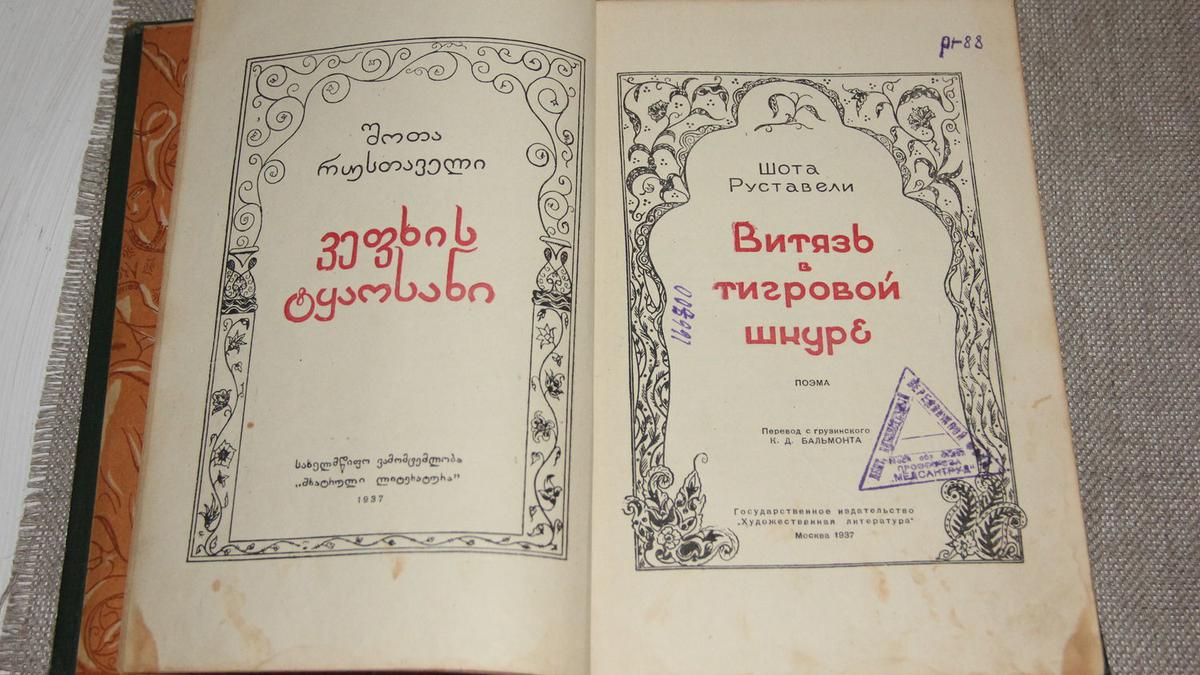
A brief history of Georgian literature and writing in famous works and persons.
The first inscriptions in the Georgian language were found on a building built in 430. And the first literary work dates back to 483 - "The Martyrdom of Saint Shushanik". "Visramiani" is a free translation of the Georgian author Sargis Tmogveli.

The first written monuments of Georgia They belong to the V century, but archaeological finds indicate an earlier time of the origin of literature. So, according to scientists, the Georgian script was formed even before our time. According to the evidence of Greek sources, Georgia in pre-Christian times was a society with an organized state system and a developed culture.
Undoubtedly, a big role in the dissemination of Georgian writing and literature was played by the declaration of Christianity as the state religion in the first half of the IV century. Since that time, Georgian literature has been developing as church-Christian.
The VI-VII centuries are represented by the works of church leaders and translated works from Eastern and Western languages – these are translations of biblical texts, apocryphal works, the lives of saints.
Such names as Monk Mikael Modrekili, John Chrysostom, George the Holy Mountaineer, Basil of Caesarea and many others are known. An outstanding translated work is The Wisdom of Balavar, a literary treatment of the Eastern legend of the Buddha. Subsequently, this book was translated into Greek and Latin, and thus became widely distributed in medieval Europe. Translated manuscripts are of great importance for the study of history in general, since some of the works have only survived in Georgian.
The earliest monument of the original Georgian literature that has survived to the present day is considered to be the work of Yakov Tsurtaveli "The Martyrdom of Saint Shushanik". It dates back to 483. This essay, based on real events, tells about the martyrdom of the wife of the ruler of the border regions of Georgia Varskena, who disobeyed her husband and refused to renounce Christianity, accept the faith of fire worshippers in favor of the Persians. Shushanik bravely endured all the trials and spent the rest of her life in prison.
Secular literature has been appearing in Georgia since the 10th century. This was facilitated by the strengthening of statehood, the increase in cultural ties with the eastern and Western world, the development of science and philosophy. Georgian folk art played a significant role in the formation of secular fiction.
The first such work is considered to be "Visramiani" by the Georgian author Sargis Tmogveli. This is a novel about love and the trials of life that lovers endure with fortitude. The work is a free prose translation of a poem by the Persian poet Fakhr-ud-Din Gurgani.
Shota Rustaveli's epic poem "Knight in Tiger Skin" (found as "Knight in Leopard Skin") is an outstanding example of classical Georgian literature of that era. The work also tells about the sufferings of two lovers in separation. Rustaveli's poem is a masterpiece of world fiction. It has been translated into many languages of the peoples of the West and the East.
The next milestone in history Georgian culture it becomes the period of the Renaissance. Since the XVI century, Georgian literary art has acquired new forms, new genres and themes have appeared. The unstable foreign policy situation contributes to the strengthening of patriotic motives. This period is represented by the poetry of Tsar Teymuraz I, Tsar Archil, Joseph Saakadze, in the XVIII century – the poetry of David Guramishvali and Vissarion Gabashvili.

The accession of Georgia to the Russian Empire in the XIX century had a positive significance for the further cultural development of the country. During this period, romanticism was entrenched in Georgian literature. Its ancestor was the poet Alexander Chavchavadze. Chavchavadze's pen includes not only poetic compositions, but also translations of works by foreign classics by F. Voltaire, V. Hugo, A.S. Pushkin.
The 20th century was marked by great changes for Georgian culture and, in particular, literature. Not all literary figures were able to accept the new state regime, many were persecuted and repressed.
One of the well–known Georgian authors of this period is Konstantin Gamsakhurdia. He wrote such novels as "The Abduction of the Moon", "The Hand of the Great Master", "David the Builder". Another recognized novelist of the XX century is Chabua Amirejibi. His main work is the novel "Date Tutashkhia", which tells about the life of Georgians in pre–revolutionary times.
Georgian literature The XX century is represented by many talented authors, including Guram Dochanashvili, Mikhail Adamashvili, Akaki Tsereteli, Luki Razikashvili and others.
We publish only interesting facts about Georgia, its sights and traditions on the Madloba website. Here you will find not only useful links and reviews, but also detailed explanations on how to make your stay in the country brighter and more exciting.













42 comments
Log in to leave a comment
Видимо, в Грузии и родилась литература, а значит, для любого книжного червя обратиться к грузинским писателям было бы неплохо. Это ведь какая библиотека у этого народа!
Литература - это серьезное культурное наследие, во многих художественных произведениях находят отражение древние народные легенды, а ещё это безусловное отражение национальных ценностей. Думаю, что грузинские произведения помогут лучше понять мировоззрение этого народа.